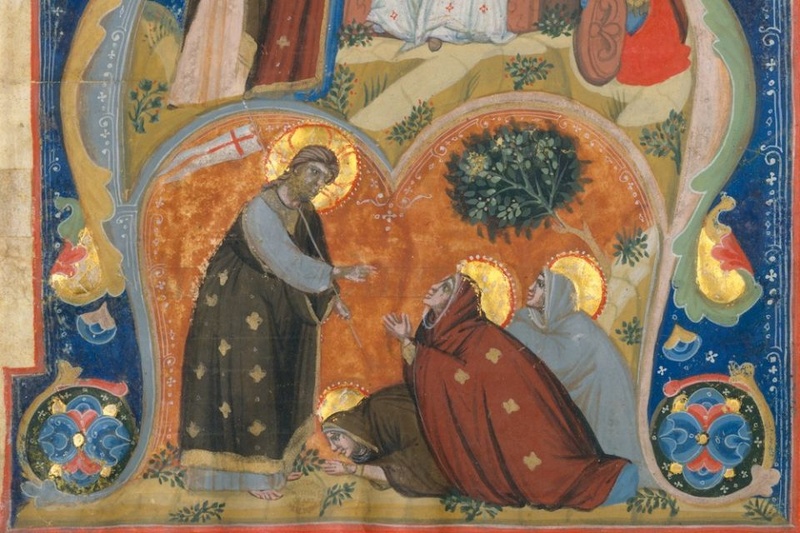The Importance of Easter
The first week of our school holidays begins the most important week in the Christian liturgical year, Holy Week. Key events include Palm Sunday which this year falls on Sunday 10 April and recalls an event in the Christian Scripture (The New Testament) of Jesus entering Jerusalem and being greeted by the people waving palm branches. For Christians, it is a reminder of the welcoming of Jesus into our hearts and of our willingness to follow him. Holy Thursday and Good Friday are also important days in Holy Week and an opportunity to attend Stations of the Cross and/or Mass.

Easter Sunday occurs this year on 17 April and is the most important festival in the Christian calendar. Easter is the greatest celebration in the Catholic church because it is the completion of the Holy week that ends with the resurrection of Jesus. Easter celebrates the beginning and foundation of Christianity. Jesus was raised from the dead, and it shows that He conquered sin and death. He is the only Son of God, who through this amazing resurrection, brings us closer to God and our faith.
While the above is true, Easter is not just about recalling the historical event of the resurrection of Jesus as a joyous moment after His crucifixion. It is far more than that. Sr Joan Chittister makes this point when she wrote,
“We love to think of Easter as the feast of dazzling light. We get up on Easter Sunday morning knowing that the sorrow of Good Friday is finally ended… that Jesus is vindicated, that the faith of the disciples is confirmed for all to see, and that everyone lived happily ever after. We love fairy tales. Unfortunately, Easter is not one of them.
Easter is the feast that gives meaning to life. It is the feast that never ends. After Easter, the tomb stands open for all of us to enter. If Jesus is risen, then you and I have no choice but to go into the tomb, put on the leftover garments ourselves, and follow Jesus back to Galilee where the poor cry for food and cripples cry to be taken to the pool and the blind wait for the spittle on their eyes to dry. All the fidelity in the world will not substitute for leaving the tomb and beginning the journey all over again. Today. Every day. Always.
Easter is raw reality. Easter stands in stark witness, not to the meaning of death, but to the meaning of what it is to go on despite death, in the face of death—because of death. To celebrate Easter means to stand in the light of the empty tomb and decide what to do next. Until we come to realize that, we stand to misread the meaning not simply of the Easter gospel but of our own lives. We miss the point. We make Easter an historical event rather than a life-changing commitment. We fail to realize that Easter demands as much of us now as it did of the apostles then.”
Louise Barry - Religious Studies Coordinator